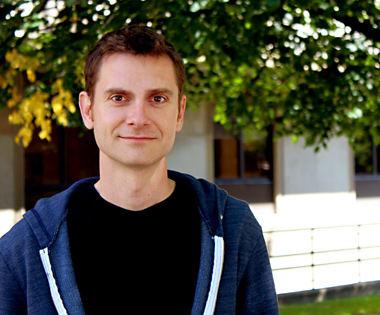
Photo by Jenny Hall
Dr. Brian Cox
The Cox Systems Biology Lab is headed by Dr. Brian Cox who brings his cross disciplinary and private sector research training to a systems biology level study of reproductive biology.
The Cox Systems Biology Lab is headed by Dr. Brian Cox. He has trained across multiple disciplines including biochemistry, environmental chemistry, toxicology, developmental biology and bioinformatics. As well he spent several years in the bio-tech sector working on antimicrobial drug development.
The aim of the Cox Systems Biology Lab research group is to apply a diverse interdisciplinary approach to the study of reproductive biology and development. We study biology by integrating gene regulation data and measure how it's influenced by the environment, development and adverse health conditions.
Our group is located at the University of Toronto in the Physiology department. This location lends itself well to systems-based research. At its core physiology is the study of the system of how a body is regulated; our application of cellular and molecular analysis reveals how genes are coordinated to regulate tissue and organ development and how this can go wrong in disease.
Our research is largely focused on placenta biology and pathology. We work with stem cell-based models as well as mouse and human tissue. We use cell labelling and sorting to identify novel populations of cells and changes in their dynamics in development and disease. We apply high-throughput techniques such as mass spectrometry based proteomics, microarray transcriptional profiling, trangenesis (genetic manipulation of cells) and computational biology to model the dynamics of gene expression and regulation.
Currently our group has two main wings of research. One is in human pathologies of the placenta, such as preeclampsia and IUGR. The second is on specification and development of the trophoblast lineage. The trophoblast generates the placenta which is the essential organ of pregnancy. The trophoblast does marvellous things, it is responsible for embryo implantation, transfers food to the growing foetus, prevents the mother from rejecting the foetus (immune response to the foreign tissue of the placenta and foetus) and produces hormones to regulate the pregnancy through changes in the mother's physiology.
Please read our Research and Projects pages to discover our inspirations and the exciting work we are conducting on the trophoblast, placenta, and human disease.
Back to top